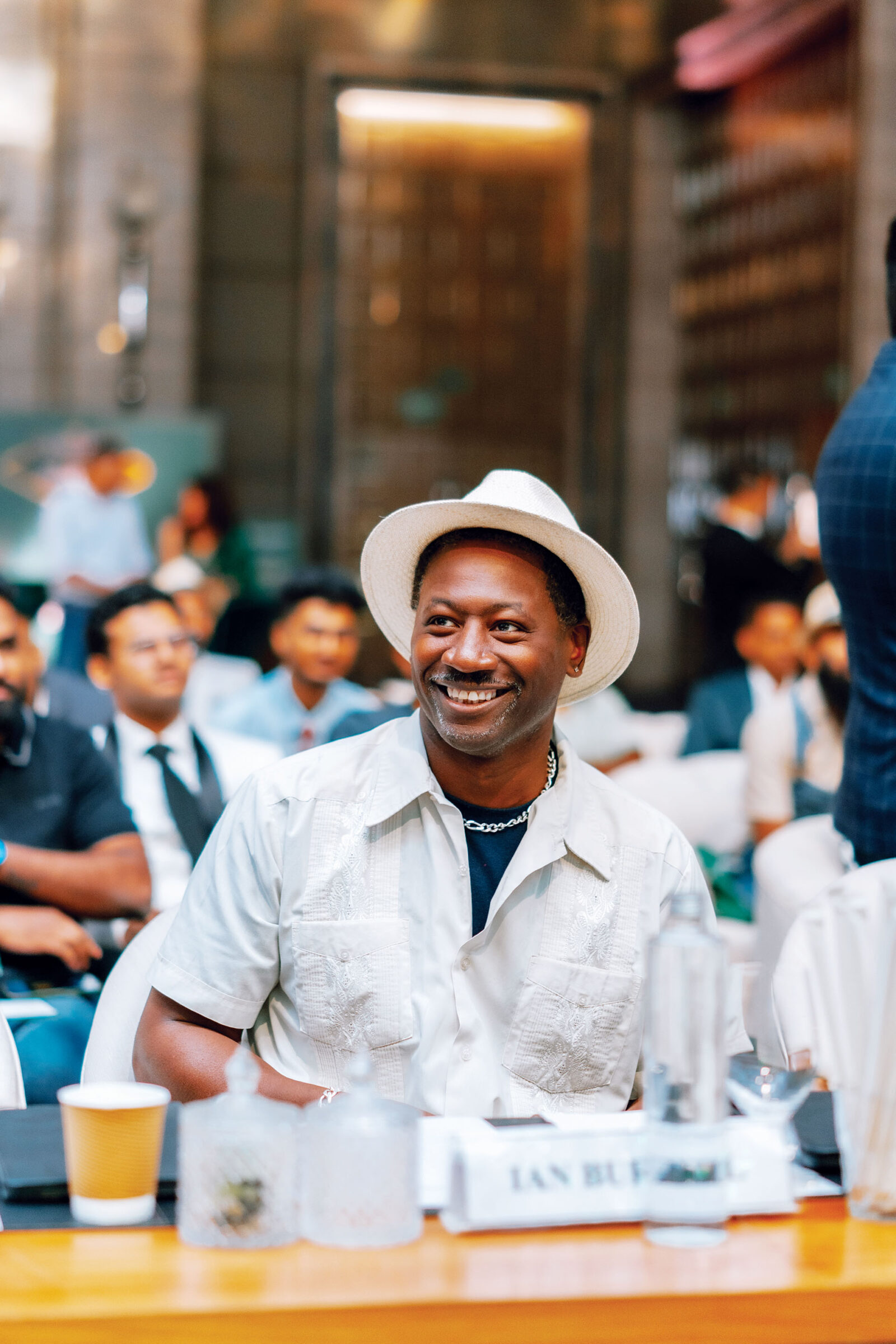
When you get to interact with two of the most respected voices in the spirits industry, you expect strong opinions, great stories, and a dash of humour. Ian Burrell and Richard Hargroves delivered on all counts. We spoke to them about their journeys, views on spirits, and evolving perspectives on the rum space.
Ian, known globally for his work with rum, has spent decades educating audiences across continents; through festivals, tastings, and regular TV appearances. A British Jamaican with a background in science and performance, his perspective blends knowledge with a good dose of charm.
Richard brings over 35 years of experience in hospitality, having worked across New York, London, Cape Town, and Hong Kong. From co-founding the London Academy of Bartending to consulting for leading spirit brands, his path has been anything but predictable. He now heads operations at a whisky distillery in Scotland.
Their responses were thoughtful, occasionally cheeky, and full of sharp insight — the kind of exchange that reminds you why the best conversations about spirits often happen with a glass in hand, even if it’s metaphorical.
What initially sparked your interest in the world of spirits, and how has that curiosity evolved over the years?
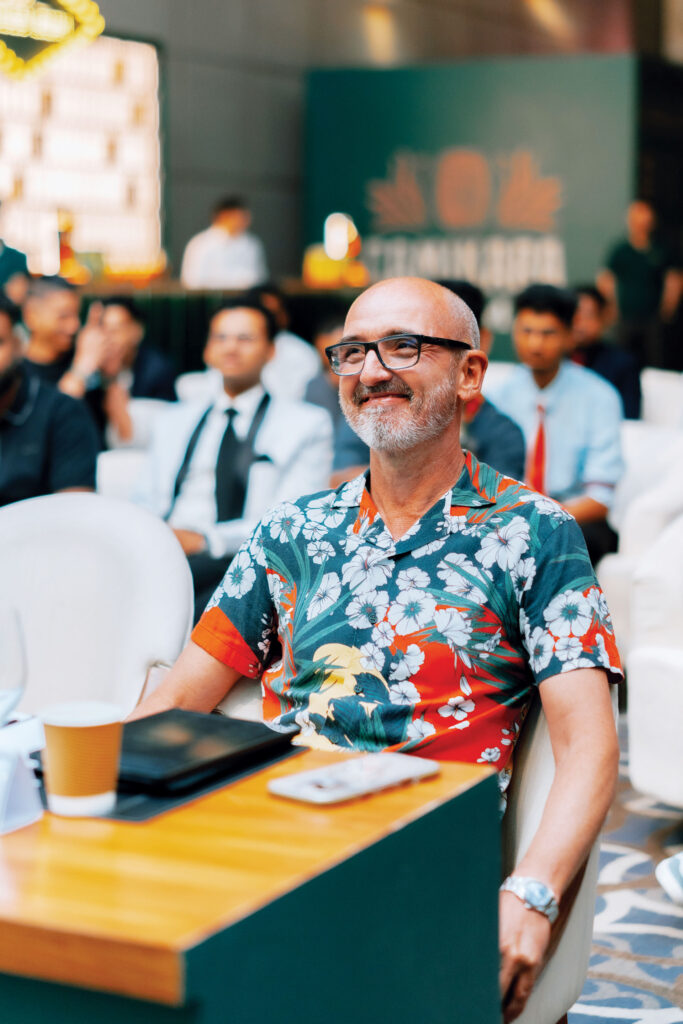
Richard: Like most people in the late ’80s, I just fell into bartending. It was never something I planned to do. I was really going to become a pilot, but I worked part-time as a bartender and fell in love with it. What really changed things for me was the job at TGI Fridays when it opened in Covent Garden in 1987. Their training was phenomenal; we had to learn nearly 500 drinks during a month’s training. I fell in love with it so much that I would probably rather work than have a night off. The money was incredible too; I was earning more than my parents when I was just 18.
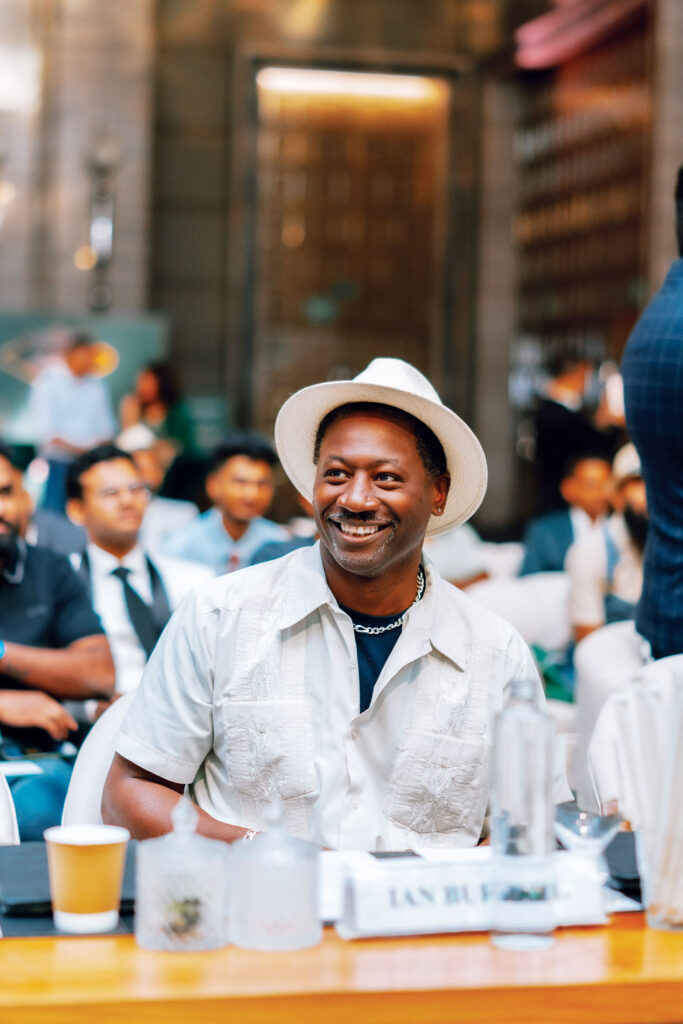
Ian: My interest in spirits has always been there. Being Jamaican, we always had rum in the house; it’s more than a spirit, it’s a way of life. I got into bartending by accident while taking time off after my A-levels. I was planning to go to drama school to become an actor, but once I started working in bars, I began meeting people, having fun, and making money. The six-month trial became a 35-year career in what I consider the best industry in the world. With my chemistry background, bartending was like applied chemistry; the spirits behind me were my elements and the cocktails my compounds. I loved the challenge of designing drinks for someone based on their preferences, naming cocktails after customers, and seeing their delighted reactions. Coming from an acting background, the bar became my stage and customers my audience. It was applying everything I loved about drama school in real life, so I didn’t need further education, this became my path forward.
You’ve travelled extensively. Which region has surprised you with its approach to rum or cocktail culture?
Richard: The Caribbean is going to be the place you can’t visit without experiencing rum. I first travelled there while working on a Carnival cruise ship, visiting Cozumel, Jamaica, and Grand Cayman. Each island had a different style of rum and cocktail approach. Later, I managed a hotel in Barbados and have visited various islands for training. What’s fascinating is how each island has developed its own distinctive rum style.
Ian: While the Caribbean is certainly the foundation of rum as we know it today, I’ve been particularly surprised by the combination of Eastern Europe and Asia. Places like the Czech Republic have no sugarcane growing there and no historical rum culture, yet they’ve embraced rum from what they’ve seen in media. They started making their own version from sugar beets (which technically can’t be called rum), but it became part of their culture until they joined the EU and couldn’t use that terminology anymore. What’s surprising is seeing how rum has been embraced in countries that don’t traditionally produce or drink rum. After travelling to all seven continents, it’s encouraging to see countries without rum traditions adopting the category…it means there’s a global future for our rums.
In your view, what defines a well-made rum—is it technique, origin, ageing, or something else entirely?
Richard: It’s all of that. The ingredients are vital; different sugarcane varieties grown in different regions can produce distinctly different tastes. Then there’s the distillation style and quality of the new make spirit, which is fundamental. It’s like cooking. If you want to make a great steak dish but start with tough, horrible meat, no chef can salvage it. Wood ageing is crucial to the quality of barrels, whether they’re first or second fill, how they’ve been seasoned; all affect the final product. Then there’s the art of blending for consistency and character. Everything matters.
Ian: I agree, rum is the sum of all those parts. One critical stage that’s often overlooked is fermentation. It’s the only part of the process where alcohol is created. When distilling, you’re purifying and concentrating on those flavours, but fermentation creates the foundation. If you speak to a distiller, they’ll say their part is most important; a blender will claim theirs is the key; the cooper will insist the barrels make all the difference. Everyone’s role is essential to creating quality rum. The climate where the rum is produced also dramatically affects the profile. Different countries have different conditions that completely change the spirit’s character. This is why countries need to establish their own rum identity, just as with wine regions. I don’t have a single favourite rum, my favourite is always “the one in my glass, the next one, and a free one,” because preferences change with context.
How do you personally engage with a new spirit—do you taste it neat first, try it in cocktails, or explore its story?
Richard: All three approaches matter. First, you need to nose and taste it neat. Many people forget that smell comes first—what aromas are present? Then comes the initial taste and the aftertaste—how long does it linger? A good spirit has that lovely lingering quality. For cocktails, daiquiri is a good example of how rum can transform into a simple drink. We once featured an aged mojito when Bacardi 8 was released, and our bar became the biggest seller of Bacardi 8 in the UK because the aged rum completely changed the character of a familiar drink.
Ian: I approach it in the same steps. Tasting neat comes first to understand if it’s well-made—you can really tell the quality when there’s nothing to hide behind. Then I consider how I’ll use it in cocktails, because while not everyone drinks spirits neat, the cocktail is the vehicle that drives rum to many customers. Some people claim they don’t like rum, yet their favourite cocktails are rum-based! Once I understand the nuances, I can craft cocktails that showcase the rum while enhancing its characteristics. Finally, I consider the brand ethics. I’ve stopped working with brands after discovering their stories weren’t authentic or their practices weren’t aligned with my values. Storytelling is crucial because with so many brands in the market, a genuine difference helps the brand stand out, especially in today’s social media landscape.
What’s your take on the rising focus on sustainability in spirit production and bar programmes?
Richard: Sustainability has become huge, especially with younger generations who are much more conscious of environmental impact. The younger demographic will only support brands that demonstrate they’re helping the world. The older generation is still learning, but for younger consumers, sustainability is essential. If that’s your message, it’s a plus but as Ian mentioned, the drink still needs to taste good. It can’t simply be done for appearance.
Ian: The rising focus on sustainability is essential. Most cocktail competitions and bar programmes are now examining how to operate more ethically and reduce their carbon footprint. I’m a big fan because good sustainability practices often save money by reusing items that would normally be discarded. It adds to creativity as well; finding new uses for what would otherwise be waste. We need to look at our business practices with an eye toward the future. The key is that sustainability measures should enhance the drink, not simply be done for the sake of optics.
Do you think storytelling sometimes overshadows substance in the premium spirits category?
Richard: The most important thing is taste. Storytelling helps, but there are too many brands with fabricated stories. With social media and the internet, it’s very easy to discover if a story is made up or if claims about supporting farmers or causes aren’t true. You’ll be found out, and that creates a completely negative effect. I sometimes refuse to buy from brands if I feel they’ve been dishonest, if they’re making things up, how can you trust their product? Credibility is everything.
Ian: Storytelling can overshadow substance sometimes, as everyone wants a compelling narrative to market their product and differentiate it. I appreciate authentic stories connected to the brand, drink, or the people behind it, not something that feels contrived. Some brands claim they’re saving elephants or tigers, but when you investigate, you discover they’re not doing anything substantial, they’re just saying it to win customers. When brands focus so much on storytelling that they forget their product needs to taste good, that’s when storytelling becomes a problem.
When you’re not working, what’s your go-to drink, and does it change with the season or city?
Richard: It completely depends on the time of year and location. I drink beer when watching football because it fits the occasion. I love tequila because it always makes you happy, and the margarita is probably my favourite cocktail. But I only order margaritas at bars I really trust; it’s a simple drink that’s often made too sweet. If I had a local bar with a bartender I knew could make it properly, that would be my go-to drink on a hot day.
Ian: When I’m not working, I like beer, cider, and what I call “fizzy grape juice from France”, if it’s free. I don’t buy champagne, but I don’t mind drinking free champagne! I have lots of rum at home but rarely drink it there. For me, rum is a social drink that I enjoy with friends and family, at bars or restaurants. If I’m watching Liverpool play on TV, I’ll have a beer, or with a meal, I’ll enjoy a nice glass of wine.
If you had to sum up your philosophy on drinks and hospitality in one sentence, what would it be?
Richard: When dining out, you might excuse an overcooked meal or a cocktail with too much sugar—those can be honest mistakes. But bad service is never acceptable. Most customer surveys show that service is always the most important factor, which comes down to hiring the right staff. I’ve always hired for personality first, I don’t care as much about experience as finding someone with the right temperament for the specific environment. Whether it’s a formal five-star hotel or a lively neighbourhood bar, getting the right personality is crucial. Despite how fundamental this is, I probably only experience truly good service about once a month when I go out, which shows how much our industry still has to learn.
Ian: Hospitality is the business that we’re in, it’s not even so much about drinks. I could be in the world’s highest-rated bar, but if the service and hospitality are terrible, my experience will be negative. Conversely, in a tiny pub or shack, a bartender who makes me feel valued creates a wonderful experience. So, my sentence would be: “Hospitality is paramount when delivering great
service.”




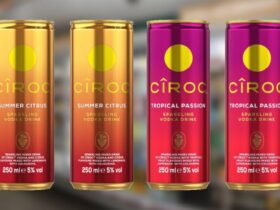

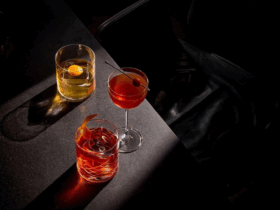



Leave a Reply